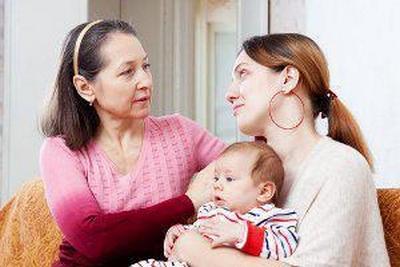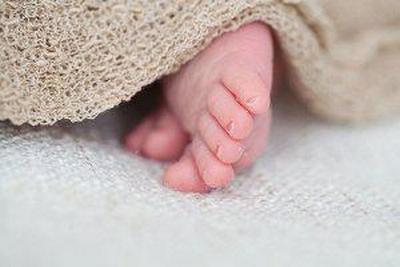Free Initial Consultations
 630-580-6373
630-580-6373With offices in Naperville, Joliet, Wheaton, Plainfield & Chicago
 Most people are at risk of making at least a few mistakes throughout the process of divorce. Of course, having an experienced divorce attorney as legal representation goes a long way in avoiding such errors and ensuring a smooth process along the way. A Chicago Tribune article from a few years ago discusses the most common mistakes made by men in divorce cases, as witnessed by a divorce attorney. While the article is gender-specific, it is important to note that these mistakes can easily be equally attributable to men or women and should be avoided by any party in a divorce case.
Most people are at risk of making at least a few mistakes throughout the process of divorce. Of course, having an experienced divorce attorney as legal representation goes a long way in avoiding such errors and ensuring a smooth process along the way. A Chicago Tribune article from a few years ago discusses the most common mistakes made by men in divorce cases, as witnessed by a divorce attorney. While the article is gender-specific, it is important to note that these mistakes can easily be equally attributable to men or women and should be avoided by any party in a divorce case.
Ten Mistakes
It is wise for members of both sexes involved in divorce proceedings to not only be aware of these commonly made mistakes, but to take steps to avoid them, ideally with the help if an attorney who is experienced in divorce cases.
 Today, family units are made up of all types of individuals. For many children, their grandparents step in to take on a larger role in their upbringing. According to a recently published article, the state of Illinois is taking steps to recognize these positive contributions grandparents are making in the lives of today’s youth. The state observed Grandparents’ Day recently and praised grandparents who were raising their grandchildren.
Today, family units are made up of all types of individuals. For many children, their grandparents step in to take on a larger role in their upbringing. According to a recently published article, the state of Illinois is taking steps to recognize these positive contributions grandparents are making in the lives of today’s youth. The state observed Grandparents’ Day recently and praised grandparents who were raising their grandchildren.
Grandparents Day
The Illinois Department on Aging (IDoA) had a large part in celebrating Grandparents’ Day on September 7th. The IDoA spoke out positively about grandparents who stepped into the role of parent to their grandchildren and took the opportunity to remind these caregivers about support services that were available to them. A grandparent who resides with their minor grandchildren and is responsible for the majority of their basic care is considered the child’s primary caregiver.
 Divorce is simply a part of life for many people in the United States and in most parts of the world. Almost everyone has a family member, friend, or other acquaintance who has had their marriage end. Relationships, including marriage relationships, are often the subject of examination and study for a number of reasons.
Divorce is simply a part of life for many people in the United States and in most parts of the world. Almost everyone has a family member, friend, or other acquaintance who has had their marriage end. Relationships, including marriage relationships, are often the subject of examination and study for a number of reasons.
Whether the focus is on factors that usually lead to a relationship ending, or what characteristics are generally present in a successful relationship, it seems these topics and others are of interest to a majority of the population, and with good reason. Relationships are an integral part of the human experience and affect the lives of nearly every individual.
The Secret to a Good Relationship
For the most part, people agree that they are happier when they are involved in a meaningful relationship. According to a recent article, scientists took this proposition one step further in order to attempt to determine how this type of relationship is achieved and whether such relationships truly make a difference to a person’s well-being. Researchers found that people who had good relationships not only thrived and were happy, but also had support to help them cope during times of stress or adversity. What is more, individuals may find this type of relationship with any number of others, including friends, parents, or partners. The support most needed will vary depending on the situation.
 Many people across the country take advantage of the adoption process to fulfill their dreams of having a family or to complete their family. Families in Illinois are certainly no exception. In light of this, there are a number of laws in place in the state regarding not only the adoption process, but also laws relevant to related situations and occurrences. Some of these laws may be well known, while others seemingly are not.
Many people across the country take advantage of the adoption process to fulfill their dreams of having a family or to complete their family. Families in Illinois are certainly no exception. In light of this, there are a number of laws in place in the state regarding not only the adoption process, but also laws relevant to related situations and occurrences. Some of these laws may be well known, while others seemingly are not.
Safe Haven Law
According to a recent news article, events that have unfolded in Illinois over the last couple of weeks have alerted officials to problems with the state’s safe haven law. Mainly, the issue is that not enough people are aware of it. This became evident, in part, by the apparent abandonment over Labor Day Weekend of a newborn in a dumpster in Jacksonville.
Illinois’ safe haven law provides that a parent may anonymously leave an unwanted newborn in the care of a doctor, nurse, firefighter, police officer, or other designated party safely and without fear of repercussion. The law defines a "newborn" as being a child who a licensed physician reasonably believes is 30 days old or less at the time the child is initially relinquished. The problem is that people do not hear about the law enough. This may be partly because the act of abandoning a newborn is not common, and also because the law is effective in keeping the matter anonymous according to the conditions of the law itself, so people are unlikely to hear about such cases on the news or through media outlets. The law has been invoked at least 98 times since it was implemented in 2001, according to what representatives from the Save Abandoned Babies Foundation said to reporters in wake of the recent case.
 There is more than one way to end a marriage in the state of Illinois. Although the legal process of divorce may be the most common form of dissolving a marriage, some couples who wish to end their marriage may also be able to obtain an annulment. An annulment also involves a legal proceeding, but differs from divorce in that a party seeking an annulment is attempting to have their marriage declared invalid. Unlike divorce, if an annulment is granted, it erases the marriage and it is as if it never happened in the eyes of the law.
There is more than one way to end a marriage in the state of Illinois. Although the legal process of divorce may be the most common form of dissolving a marriage, some couples who wish to end their marriage may also be able to obtain an annulment. An annulment also involves a legal proceeding, but differs from divorce in that a party seeking an annulment is attempting to have their marriage declared invalid. Unlike divorce, if an annulment is granted, it erases the marriage and it is as if it never happened in the eyes of the law.
Grounds for an Annulment
According to the applicable law in the state of Illinois, the reasons one can file for an annulment of a marriage are limited. The following are considered recognized grounds for an annulment in the state:
 Family law issues are among the most controversial and dramatic cases seen in courtrooms today. Perhaps that is not surprising, considering these matters often involve the ending of a marriage, custody battles, and fighting over property. Family law cases, too, usually involve very emotional subject matter, which can range from anger and stress to sadness over loss. It can easily be argued that the role family law attorneys play in these cases is of the utmost importance, which is why hiring an experienced professional, who has a solid understanding of Illinois divorce laws, is crucial.
Family law issues are among the most controversial and dramatic cases seen in courtrooms today. Perhaps that is not surprising, considering these matters often involve the ending of a marriage, custody battles, and fighting over property. Family law cases, too, usually involve very emotional subject matter, which can range from anger and stress to sadness over loss. It can easily be argued that the role family law attorneys play in these cases is of the utmost importance, which is why hiring an experienced professional, who has a solid understanding of Illinois divorce laws, is crucial.
Family Law Cases are Becoming More Common
In the past few decades, it seems that family law cases in general, and specifically divorces, have become more prevalent than they were previously. People in unhappy or unfulfilling relationships are much more likely to call it quits than to try and make their marriage work. Perhaps this is because it is more acceptable for people to think of their own needs, or because more families have two incomes and both parties are therefore more financially independent. Many factors are at play in any given divorce, and a marriage may end for any number of reasons. But no matter the road a couple takes to get there, the process of getting divorced is generally not easy or straightforward.
 Today, it seems more couples than ever are choosing to live together, whether or not they plan to marry. In fact, a committed couple eventually deciding to move in together is not only acceptable, but may even be expected in our current culture. Despite the prevalence of this practice, there are some important considerations and preparations a couple should take before making the decision to share a home, as a recent article points out. Preparing for the Move While making the decision to live together is likely an exciting and even romantic time for most couples, there are also some serious matters that should be addressed. Couples who plan on sharing a home should be prepared to have an honest discussion about their personal affairs, including their finances. Successfully combining both households may require a bit of work, and preparing a joint budget is a good idea to aid in the process. A budget will also help a couple decide how they will pay bills and other household expenses once they are cohabiting. Taking these steps in advance of moving in together will help avoid conflict down the road and make the transition into sharing a home with a partner that much easier. Another topic couples should discuss before moving in together is their future expectations for their relationship. Both partners should have a clear idea of where the relationship is headed, whether that means marriage or not. In addition to the future state of the relationship, a couple should also discuss how they would handle other life situations should they arise, like a pregnancy. Finally, it would be a prudent choice for cohabitating couples to rent rather than purchase real estate if they are not yet married. Buying a home is a serious financial decision that can have significant consequences if a couple breaks up. There are no clear guidelines or laws in place to address such a situation in the event of a breakup, unlike divorce laws that are in place. Down the Road Even after a couple moves in together, there are still some additional considerations to take into account:
Today, it seems more couples than ever are choosing to live together, whether or not they plan to marry. In fact, a committed couple eventually deciding to move in together is not only acceptable, but may even be expected in our current culture. Despite the prevalence of this practice, there are some important considerations and preparations a couple should take before making the decision to share a home, as a recent article points out. Preparing for the Move While making the decision to live together is likely an exciting and even romantic time for most couples, there are also some serious matters that should be addressed. Couples who plan on sharing a home should be prepared to have an honest discussion about their personal affairs, including their finances. Successfully combining both households may require a bit of work, and preparing a joint budget is a good idea to aid in the process. A budget will also help a couple decide how they will pay bills and other household expenses once they are cohabiting. Taking these steps in advance of moving in together will help avoid conflict down the road and make the transition into sharing a home with a partner that much easier. Another topic couples should discuss before moving in together is their future expectations for their relationship. Both partners should have a clear idea of where the relationship is headed, whether that means marriage or not. In addition to the future state of the relationship, a couple should also discuss how they would handle other life situations should they arise, like a pregnancy. Finally, it would be a prudent choice for cohabitating couples to rent rather than purchase real estate if they are not yet married. Buying a home is a serious financial decision that can have significant consequences if a couple breaks up. There are no clear guidelines or laws in place to address such a situation in the event of a breakup, unlike divorce laws that are in place. Down the Road Even after a couple moves in together, there are still some additional considerations to take into account:
 Prenuptial agreements are gaining popularity and are no longer seen as being exclusively for the wealthy. Many people want to ensure they are protected prior to entering into marriage and may have good reason to do so. However, not all prior prenuptial agreements are upheld in the event of divorce. Oftentimes, the spouse who signed the prenup will challenge its validity in order to have the agreement declared invalid so they will not be held by its terms. The question arises: what makes a prenup invalid in the state of Illinois?
Prenuptial agreements are gaining popularity and are no longer seen as being exclusively for the wealthy. Many people want to ensure they are protected prior to entering into marriage and may have good reason to do so. However, not all prior prenuptial agreements are upheld in the event of divorce. Oftentimes, the spouse who signed the prenup will challenge its validity in order to have the agreement declared invalid so they will not be held by its terms. The question arises: what makes a prenup invalid in the state of Illinois?
Illinois Law
Illinois law regarding the validity of prenuptial agreements changed in 1990. As a result, agreements signed before 1990 are held to different standards for validity than those signed after January 1st of that year.
Prenuptial agreements signed in the year 1990 and after are governed by the Illinois Uniform Premarital Agreement Act (UPAA). Under the UPAA, a party who is challenging the validity of a prenuptial agreement must show that the agreement was not entered into voluntarily or that the agreement was unconscionable at the time it was signed and that there was not full and fair disclosure of finances between the parties. Proof of inadequate disclosure involves the party seeking invalidation to show that he or she was not provided with full financial disclosure, that voluntary waiver of such disclosure was not made, and that he or she did not know nor could have known about the true nature of the other party’s finances.
 Summer vacation and a break from school means different things for different families. For some parents who got divorced or made the decision to do so, it may have been a summer of adjustment and even grief. Divorced and divorcing families certainly go through a lot, from changes in finances to emotional challenges. Having navigated these circumstances all summer, and perhaps getting into some sort of comfortable routine, the task of getting kids ready to go back to school may seem more daunting than ever. However, there are some things newly divorced or divorcing parents may want to consider in preparing to send their children back to the classroom.
Summer vacation and a break from school means different things for different families. For some parents who got divorced or made the decision to do so, it may have been a summer of adjustment and even grief. Divorced and divorcing families certainly go through a lot, from changes in finances to emotional challenges. Having navigated these circumstances all summer, and perhaps getting into some sort of comfortable routine, the task of getting kids ready to go back to school may seem more daunting than ever. However, there are some things newly divorced or divorcing parents may want to consider in preparing to send their children back to the classroom.
Strategies
A recent article outlines five strategies that may be useful to employ with children who will be returning to school this year with divorced or divorcing parents in order to make the transition easier for them and to keep them on track during the school year.
